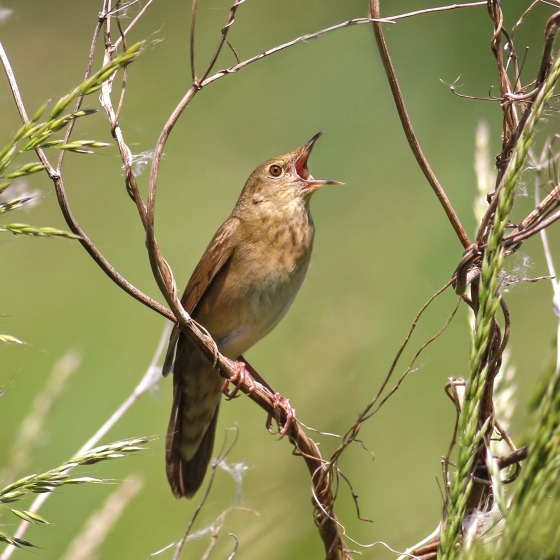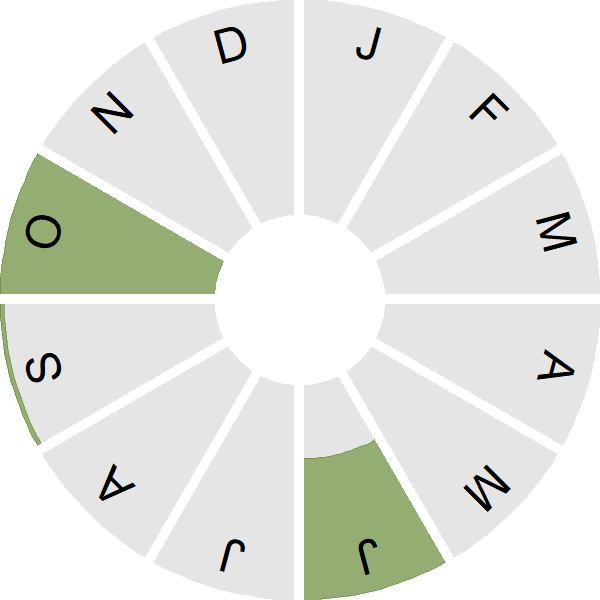River Warbler

Introduction
Records of this rare visitor from eastern Europe peak in September, but the occurrence of several singing males in the summer has led some to speculate it may eventually breed here.
The River Warbler's song often mimics the sounds made by local invertebrates (such as cicadas or bush-crickets), sometimes even mimicking different species during the day and night.

Key Stats
Status and Trends
Conservation Status
Population Size
Population Change
Population trends of this scarce species are not routinely monitored.
Distribution
This species is a rare vagrant and was recorded during Bird Atlas 2007–11 as shown on the map.
Occupied 10-km squares in UK
or view it on Bird Atlas Mapstore.
European Distribution Map
Distribution Change
This vagrant is too rarely reported to map distribution change.
Seasonality
River Warbler is a very rare vagrant, with records in late spring and autumn.
Weekly pattern of occurrence
The graph shows when the species is present in the UK, with taller bars indicating a higher likelihood of encountering the species in appropriate regions and habitats.

Movement
Britain & Ireland movement
Foreign locations of birds ringed or recovered in Britain & Ireland
Dots show the foreign destinations of birds ringed in Britain & Ireland, and the origins of birds ringed overseas that were subsequently recaptured, resighted or found dead in Britain & Ireland. Dot colours indicate the time of year that the species was present at the location.
- Winter (Nov-Feb)
- Spring (Mar-Apr)
- Summer (May-Jul)
- Autumn (Aug-Oct)

Biology
Survival and Longevity
Survival is shown as the proportion of birds surviving from one year to the next and is derived from bird ringing data. It can also be used to estimate how long birds typically live.
View number ringed each year in the Online Ringing Report.
Classification, names and codes
Classification and Codes
- Order: Passeriformes
- Family: Locustellidae
- Scientific name: Locustella fluviatilis
- Authority: Wolf, 1810
- BTO 2-letter code: VW
- BTO 5-letter code: RIVWA
- Euring code number: 12370
Alternate species names
- Catalan: boscaler fluvial
- Czech: cvrcilka rícní
- Danish: Flodsanger
- Dutch: Krekelzanger
- Estonian: jõgi-ritsiklind
- Finnish: viitasirkkalintu
- French: Locustelle fluviatile
- German: Schlagschwirl
- Hungarian: berki tücsökmadár
- Icelandic: Straumsöngvari
- Italian: Locustella fluviatile
- Latvian: upes kaukis
- Lithuanian: upinis žiogelis
- Norwegian: Elvesanger
- Polish: strumieniówka
- Portuguese: cigarrinha-ribeirinha
- Slovak: svrciak riecny
- Slovenian: recni cvrcalec
- Spanish: Buscarla fluvial
- Swedish: flodsångare
- Welsh: Telor Afon

